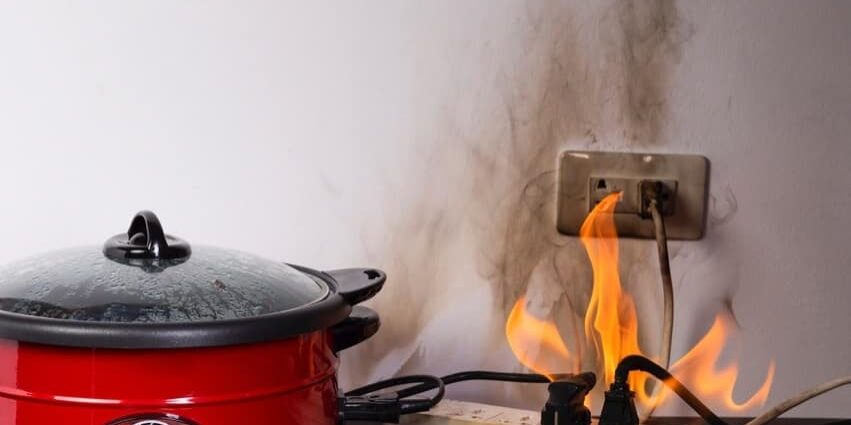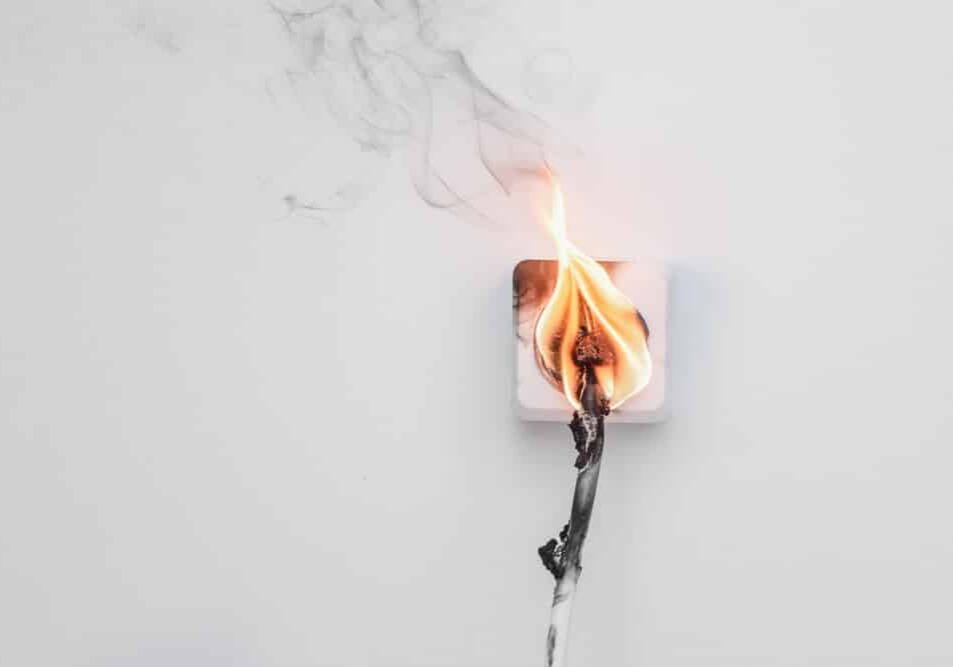While everyone likely knows that electricity can be dangerous and potentially start fires, there are several things you currently do that could contribute to an electrical fire in your home. In fact, some of these factors you may not even see as potential problems. To help ensure you are protected from potential dangers, here are 5 common causes of electrical fires in homes.
Dated Appliances
Even though your old appliances may still serve their purpose, the wiring that is inside of these appliances could be wearing thin. This can be hard to pinpoint for items like toasters or small appliances that are encased in metal. However, as the wiring continues to age in dated appliances, the fire risk it presents becomes even more pressing.

Faulty Outlets
When used daily, the average electrical outlet will wear out in around 15 years. Generally, the pressure plates found inside of the outlet fail to hold the plug firmly and will cause electrical arching. This, in turn, creates a spark that jumps across the connection points and may meet flammable material to create an unsafe scenario. This can also be true for switches that are also faulty
Improper Bulbs
Did you know that light bulb sockets are actually rated for specific wattages? Unfortunately, most people don’t and will add a high wattage light bulb into a socket it’s not rated for. This can lead the bulb to quickly burn out while also placing strain on the socket it is installed in. With prolonged use, this can easily contribute to electrical fires in homes.
Extension Cord Use
Everyone is likely guilty of overloading extension cords and power adapters to keep their electronics functioning. In reality, extension cords were developed to be a temporary bridge for locations that don’t have outlets already installed. When used for a prolonged period, extension cords can overheat and catch fire. Instead of risking it, consider getting new outlets installed where they are needed or limit the number of electronics plugged in at one time.
Old Wiring
One of the leading contributors to electrical fires in homes is old wiring. Over time, the standards required for a safe electrical supply in a home have changed and, if your home is older, may need to be updated to meet the current guidelines. If left alone, this old wiring can become a ticking time bomb for electrical fire risk. While it may seem expensive to replace old electrical wiring in your home, the peace of mind you achieve and avoided dangers make the investment worth it.

